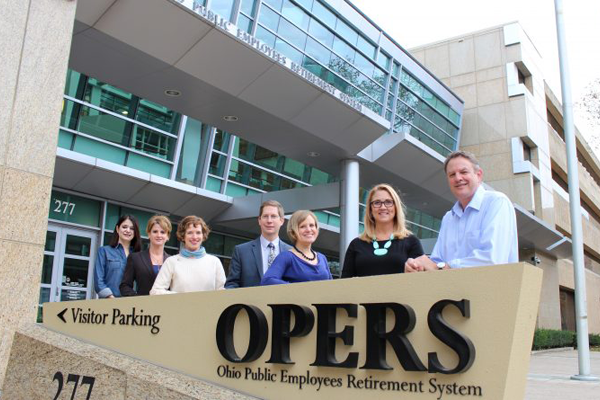
Excerpt from PERSpective
By Michael Pramik, Ohio Public Employees Retirement System
The OPERS Board of Trustees is considering long-term changes to pension benefits and health care, and the trustees discussed these topics at their August meeting.
Pre-Medicare health care, the cost-of-living adjustment and the creation of a new transition group for the defined benefit plan were the main topics the Board addressed with input from OPERS staff. Here’s a roundup of what was discussed and where those discussions might be heading in the coming months.
COLA
OPERS has an unfunded actuarial accrued liability of $24 billion, an all-time high. OPERS is taking steps to reduce that liability, and one option that the trustees are considering is a two-year freeze of the cost-of-living adjustment for all retirees, after which the COLA would return to current conditions.
The proposal comes several years after passage of Senate Bill 343, which required active members to pay more for their retirement and work longer before they could retire.
In addition to freezing the COLA in 2022 and 2023, the proposal also includes delaying future COLAs to two years after retirement, instead of one, for future retirees, and restoring 85 percent purchasing power to some retirees who receive lower pensions.
The Board will consider the proposal at future meetings.
Health care
OPERS’ first obligation is to fund pensions, with health care coverage being a discretionary benefit. Because of market forces, however, we’re currently not able to contribute any money to our Health Care Fund.
Without additional contributions, the fund’s solvency is 11 years. Meanwhile, our actuaries project we can’t begin contributing to the fund for at least 15 years. Thus, it’s necessary to take steps now to preserve health care coverage for current and future retirees.
The Board has been discussing this topic since last year and in August considered five proposals to update health care coverage. The trustees centered on a package of changes that would impact all OPERS members in some way. But, importantly, it would retain access to health care for all members and retirees.
Highlights of this package include:
- Requiring high years-of-service levels to receive an allowance for those retiring at an early age (under age 65)
- Keeping current eligibility requirements of age 65 with 20 years of service for Medicare coverage
- Maintaining grandfathered population eligibility but with reduced allowances
- Reducing the base allowance for both plans
- Eliminating the group plan for non-Medicare retirees and replacing it with an open-market model
More details will be available in coming months as the trustees near a decision. OPERS is currently conducting regional seminars on this topic. Go to the Education section on the OPERS website to sign up.
Transition Group D
OPERS members currently fall into one of three transition groups, Group A, Group B and Group C. Group A members have the most service time, with the other groups being newer to the system.
In the face of challenges to the Traditional Pension Plan and retiree health care, and to meet the changing needs of Ohio public workers, staff began discussions with the Board to create a unique tier of OPERS membership.
As proposed, those who join OPERS in 2022 and beyond would be part of Group D, a separate section of the Traditional Pension Plan that would have its own eligibility standards, benefit structures and unique features.
It would create a plan with enhanced flexibility and give members more control over their own retirement security. While discussions are preliminary, here are a few of the details being discussed:
- Contribution rates
- Gainsharing account
- Retiree Medical Account:
- COLA
- Benefit eligibility and final average salary
- Portability
The Board will continue discussion on the creation of Group D during the September meeting.

